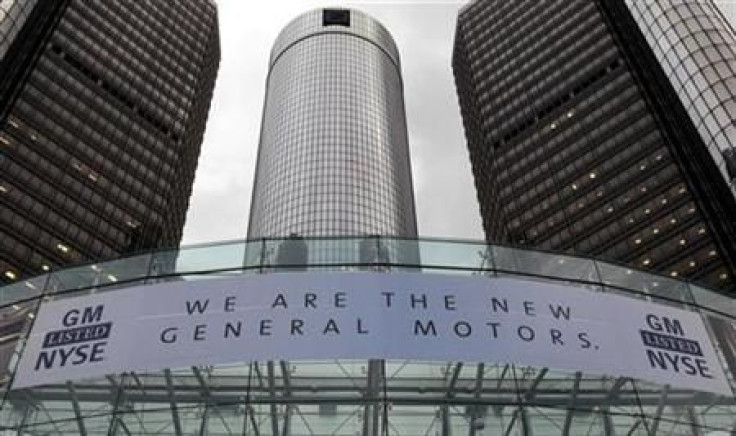Need Some Valtrex? GM Sued for $3 Billion by Spyker Over Saab Bankruptcy

Like a bad case of herpes, the bankrupt Swedish automaker Saab Automobile AB just keeps flaring up in General Motors Company's (NYSE: GM) private dealings.
Dutch supercar company Spyker N.V. announced Monday it was suing General Motors for $3 billion in damages on account of alleged interference in a 2011 transaction between Spyker (which owned Saab) and Chinese investor Youngman, a deal which Spyker alleges would have saved Saab if it had been successful.
"Ever since we were forced to file for Saab Automobile's bankruptcy in December of last year, we have worked relentlessly on the preparation for this lawsuit which seeks to compensate Spyker and Saab for the massive damages we have incurred as a result of GM's unlawful actions," Zeewolde, Netherlands-baed Spyker CEO Victor Muller said Monday.
Detroit-based General Motors purchased a 50 percent interest in Saab in 1989 with an initial investment of $600 million, and it took complete ownership of the struggling company in 2000 for an additional $125 million. General Motors decided that Saab was becoming an uncomfortable financial companion in 2010 and sold the company to Spyker in the wake of years of losses. When Saab entered bankruptcy on December 19, 2011, it was indebted 13 billion krona ($1.93 billion).
Since the bankruptcy, Saab has been acquired by the Sino-Japanese joint venture National Electric Vehicle Sweden AB (NEVS) which plans to use what remains of the company to produce electric cars for the Chinese market. NEVS acquired the company for around 1.5 billion to 1.8 billion krona according to local Swedish media reports.
The Chinese connection has made Saab an ongoing infection for GM. While NEVS seeks to capitalize on Saab's automotive legacy, Spyker is alleging that GM set out to ruin Saab to protect its own share of the Chinese market. Spyker alleges that GM sought to avoid competing with Saab in the Chinese market by blocking a restructuring deal with a Chinese investor known as Youngman.
"GM's actions had the direct and intended objective of driving Saab Automobile into bankruptcy," Spyker said Monday. Spyker has agreed to shoulder the legal expense of suing GM on behalf of Saab in exchange for "a very substantial share of Saab Automobile's award when the proceedings are successful." Moreover, Spyker says it has an anonymous third-party investor who is backing the legal proceedings against GM.
It remains to be seen whether the lawsuit, filed in the U.S. District Court of the Eastern District of Michigan, will be successful, but that GM has capitalized on a strong Chinese position is a simple fact. GM and its Chinese joint-venture SAIC-GM-Wuling sold 199,503 vehicles in July, up 15.1 percent from the year before, the company announced Monday. Whether that huge boost in sales is as a result of a less competitive Chinese market without Saab isn't clear, but year-to-date Chinese sales are up 11.7 percent. GM says it has been the sales leader in the Chinese market for the past seven years.
Representatives for GM were not immediately available for comment, but Reuters reported a GM spokesman as saying that Spyker's allegations were "hard to believe. We have no comment until we see the lawsuit."
GM reported second quarter 2012 income of $1.5 billion, meaning that if Spyker's $3 billion lawsuit is successful, it could easily wipe out multiple quarters of earnings for General Motors and its shareholders who earned 90 cents per share in the second quarter unless the company stumbles upon the Valtrex-treatment of legal defenses.
General Motors Company (NYSE: GM) shares fell 24 cents to $19.80 in afternoon trading.
© Copyright IBTimes 2024. All rights reserved.











